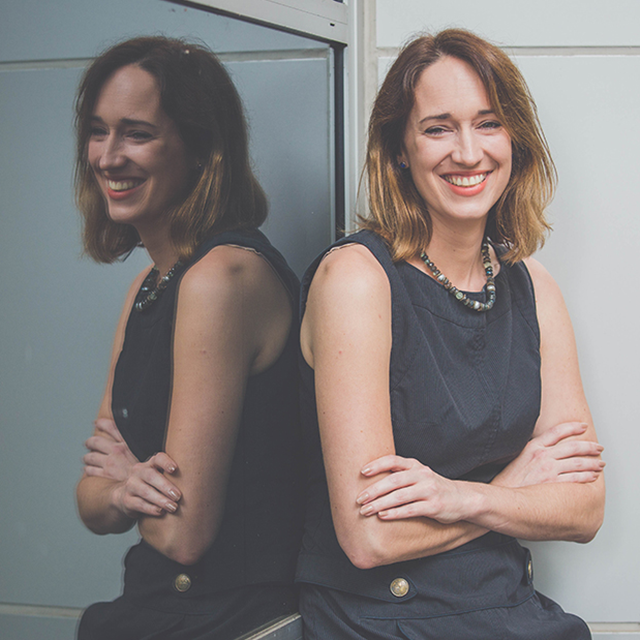Six researchers in UQ’s Faculty of Health and Behavioural Sciences have been awarded National Health and Medical Research Council Investigator Grants.
These grants encourage researchers from all career stages to pursue important new research directions as they arise and to form collaborations as needed, rather than being restricted to the scope of a specific research project.
Find out more about each recipients’ research below:
 Professor Amanda Ullman from UQ’s School of Nursing, Midwifery and Social Work and Children’s Health Queensland will research the prevention of central venous catheter-associated harm for children treated with cancer.
Professor Amanda Ullman from UQ’s School of Nursing, Midwifery and Social Work and Children’s Health Queensland will research the prevention of central venous catheter-associated harm for children treated with cancer.
It will seek to transform the way interdisciplinary clinicians practice at three critical points: when they select, insert and manage children’s central venous catheters (CVC).
One thousand children are diagnosed with cancer each year in Australia and the CVC quickly becomes a vital link between their bloodstream and anti-cancer treatments and supportive therapies. However, this ‘lifesaving link’ can also cause significant harm. For one in three children with cancer, blood stream infections, blood clots and other events caused by their CVC can disrupt treatment, resulting in significant harm, expense and even death.
 Director of the Education and Research Alliance at the Surgical, Treatment and Rehabilitation Services, Metro North Health, UQ Professor Nadine Foster from the School of Health and Rehabilitation Sciences will aim to deliver the right treatment at the right time for patients with musculoskeletal pain.
Director of the Education and Research Alliance at the Surgical, Treatment and Rehabilitation Services, Metro North Health, UQ Professor Nadine Foster from the School of Health and Rehabilitation Sciences will aim to deliver the right treatment at the right time for patients with musculoskeletal pain.
Musculoskeletal pain is the most common cause of disability worldwide, accounting for 17 per cent of all years lived with disability. Conditions such as back pain and osteoarthritis affect seven million Australians and are responsible for the greatest share of health system expenditure.
The health system is struggling to meet the demand, commonly offering treatments of limited value to patients who don't need them, whilst not providing access to effective care for those who do. Through collaborative randomised clinical trials and IPD meta-analysis, this program will reduce uncertainty about treatment effectiveness and better ensure patients get access to the care they need.
 Professor Claire Rickard from UQ’s School of Nursing Midwifery and Social Work, Metro North Health and UQ Centre for Clinical Research will lead a team to establish a world-first adaptive platform randomised controlled trial for intravenous (IV) therapy, aiming towards zero bloodstream infections in IV catheters.
Professor Claire Rickard from UQ’s School of Nursing Midwifery and Social Work, Metro North Health and UQ Centre for Clinical Research will lead a team to establish a world-first adaptive platform randomised controlled trial for intravenous (IV) therapy, aiming towards zero bloodstream infections in IV catheters.
35 per cent of healthcare associated bloodstream infections in Australian hospitals are caused by IV therapy via IV catheters. These ‘catheter associated blood stream infections’ (CABSI) prolong hospital length of stay, increase healthcare costs and risk of death. CABSI prevention may benefit from the numerous commercial products and clinical practices that exist, but few have been formally studied.
 Dr Nigel Lee from UQ’s School of Nursing, Midwifery and Social Work will seek to establish sterile water injections as a safe, effective and acceptable pain relief for women in regional Australia during childbirth.
Dr Nigel Lee from UQ’s School of Nursing, Midwifery and Social Work will seek to establish sterile water injections as a safe, effective and acceptable pain relief for women in regional Australia during childbirth.
Safe and effective management of labour pain is a basic human right, yet women who give birth in regional Australia often have limited options for management of labour pain.
Previous research by Dr Lee has proven small injections of water are effective in reducing labour back pain with minimal side effects. The new research aims to develop a water injection technique that reduces abdominal labour pain that can be used safely in childbirth to provide an effective, low-cost option for labour pain management for women in rural and other birthing settings.
 Professor Michele Sterling from UQ’s RECOVER Injury Research Centre will aim to create better health outcomes after road traffic injury.
Professor Michele Sterling from UQ’s RECOVER Injury Research Centre will aim to create better health outcomes after road traffic injury.
Chronic pain affects 20 per cent of the global population. Musculoskeletal pain is the most common form of chronic pain, and the leading cause of disability worldwide, affecting approximately 540 million people at any one time. Of that, 30 per cent of cases are attributed to a road traffic injury.
The research will aim to prevent the development of chronic pain by establishing a proactive personalised healthcare model in the early post injury stage and produce new knowledge under three broad aims:
(1) Gain new insights into the multidimensional development of chronic pain, (2) Test novel early treatments to prevent chronic pain after road traffic injury and (3) Implement early risk-screening models of care in the clinical and injury compensation environments.
 Professor Irina Vetter from UQ’s School of Pharmacy and Institute for Molecular Bioscience will support a program of research spanning fundamental, applied and translational themes at the intersection of sensory neuroscience, ion channel pharmacology and toxinology.
Professor Irina Vetter from UQ’s School of Pharmacy and Institute for Molecular Bioscience will support a program of research spanning fundamental, applied and translational themes at the intersection of sensory neuroscience, ion channel pharmacology and toxinology.
The aim of the research is to elucidate the molecular mechanisms underpinning sensory neuron excitability in physiological and pathological pain states to identify novel therapeutic targets and to develop mechanism-based treatment approaches.
The research program is centred around the 3 inter-related themes of pain mechanisms, pain targets and pain treatments. In line with these themes, Professor Vetter’s specific aims include; (1) Delineate the molecular mechanisms of chemotherapy-induced peripheral neuropathy, (2) Define the structure and function of novel NaV channel accessory subunits, and (3) Develop and optimise NaV channel-targeting peptides as novel pain therapeutics.
Media: UQ Communications, Bridget Druery, b.druery@uq.edu.au, (+61) (0)435 221 246 @UQHealth



